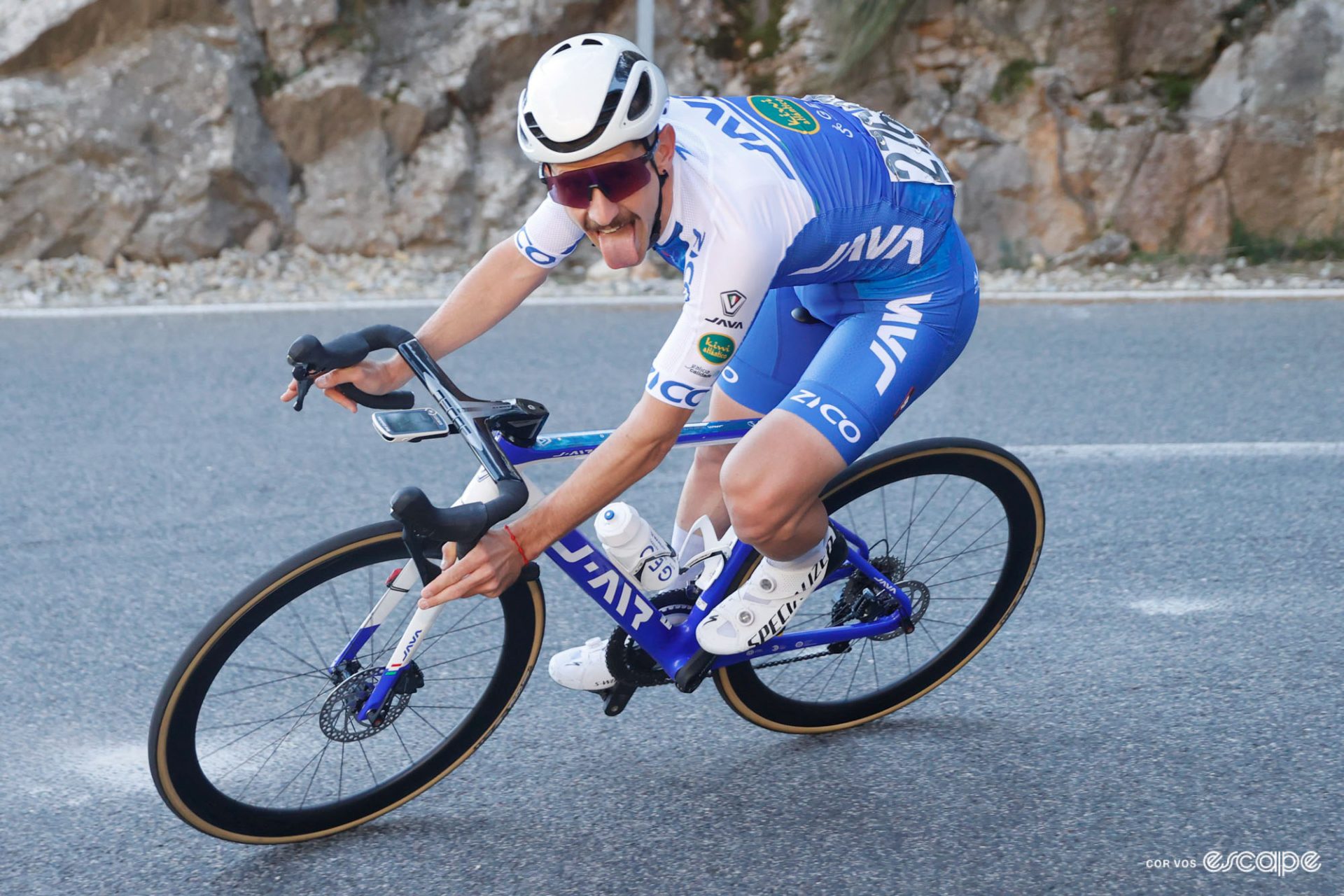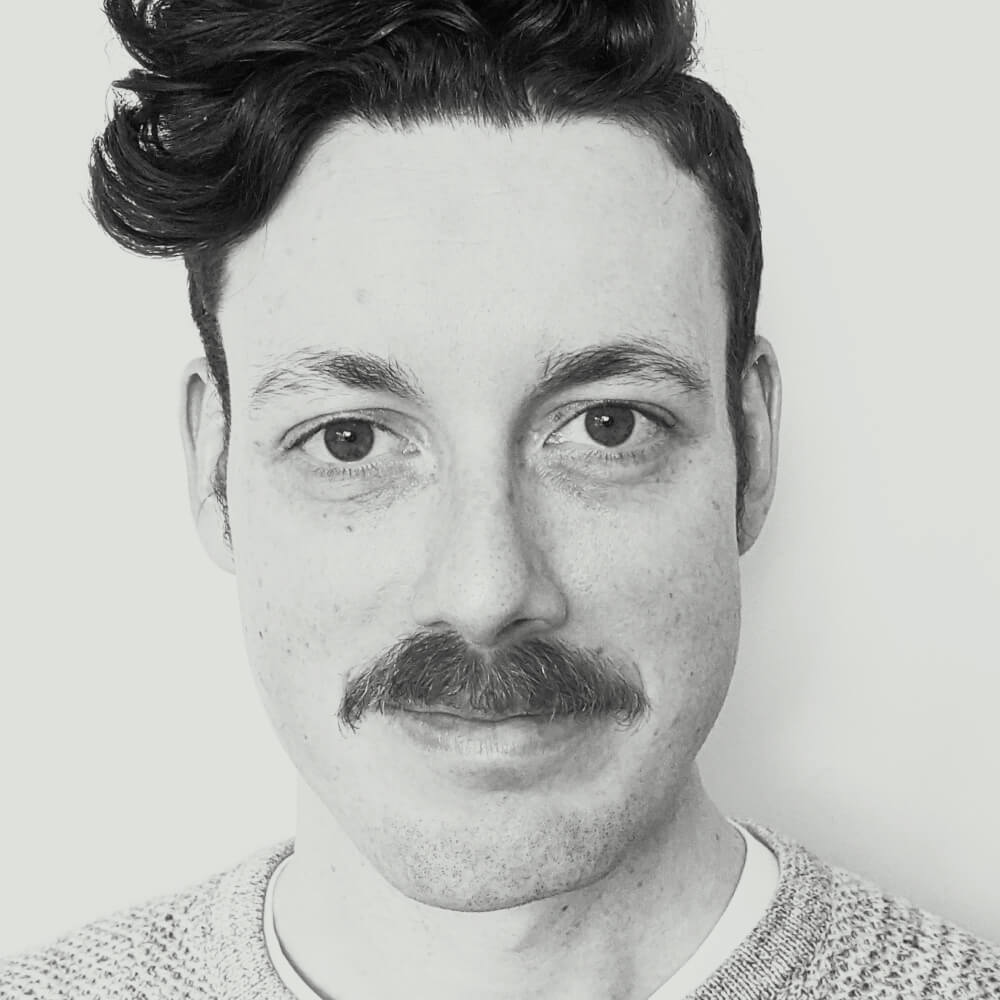On the fringes of the professional cycling world, bound by the rules of the UCI but some steps removed from the glamour of the top races, are the Continental teams. Within this classification sits over 170 men’s teams, wildly varied in professionalism, each with a roster of riders and staff – some paid, some not – from countries all over the world.
As a ruling last week by the UCI Disciplinary Commission has demonstrated, there is a precariousness to this existence: the Venezuelan-registered Team Java-Kiwi Atlántico, which was last active in 2022, has been banned from registration with the UCI and access to any events on its calendar until December 31, 2028. The team’s general manager, Enrique Salgueiro, was banned “from any activity in cycling” for the same duration while also attracting a fine, and its registered team representative, Gerardo Guzman, has been banned until the end of 2025.
Amongst the arid language of this UCI ruling lie some incriminating allegations of fraud and forgery, “misrepresentations and the production of false documents.” Perhaps the most eyebrow-raising finding is that the team forged a UCI official’s signature on an official document, which was uncovered following a complaint to the UCI. There was also a fake rider contract submitted to the Venezuelan Cycling Federation – again, with a forged signature. But wait, there’s more: the deception wasn’t just in the registration process, but during the investigation too. “Enrique Salgueiro was also found to have acted in contravention of principles of trustworthiness and integrity by intentionally submitting false information … during the proceedings before the Disciplinary Commission in breach of articles 12.2.001 and 12.4.017 of the UCI Regulations,” the UCI media release reads.
These findings led the Disciplinary Commission to rule that fraud had been committed under article 12.4.008 of the UCI Regulations. Guzman, meanwhile, was found to be “complicit in circumventing the UCI regulations on nationality of UCI continental teams”, having registered as a team representative “without carrying out any of the tasks incumbent upon a person in such a role”.
A complicated history
That final breaking point for Team Java-Kiwi Atlantico comes after years of fragile existence. First established in 2018, the team was itself a project for a former professional cyclist in its manager, Salgueiro, who won the 2005 Vuelta a Leon and the 2006 Tour des Pyrenees, rode for teams in Spain and Portugal, and received a two-year ban in 2012 for the use of human growth hormone (he maintains his innocence).
The team he established post-sanction and eventual retirement has been registered in numerous countries on numerous continents – at first in the team’s spiritual heartland of Spain, but also Guinea-Bissau in western Africa and, in 2022, Venezuela in South America.
According to a sometimes-tense interview given by Salgueiro on YouTube, the team had plans to register for 2023, before receiving notification from the UCI days prior to the start of its campaign that “we did not meet the requirements to register … and that was it.” Responsibility for the fake signatures is glossed over in Salgueiro’s interview (“It’s true that sometimes you have friends who do something for you …”)
There are hints of a more troubling reality that may exist beneath the surface. The Europe-based US journeyman climber, Barry Miller, spoke briefly of his time on the team in 2022 with Portuguese Cycling Magazine: “I had major issues with the equipment to the point where I was worried about my own safety and on top of that I felt like it wouldn’t be competitive,” Miller said. “Also the racing program just was not happening, the team was not receiving invitations to the competitions as they had in the past.” He would break contract with the team by July of that year.
The riders contracted to the squad for 2023 were released by the UCI, leaving Salgueiro with, as he termed it, “a blank year”. A later attempt to reform the team for 2024, this time through a merger with a Croatian club team, has seemingly been stymied by the UCI Disciplinary Committee’s ruling. The Kamen Pazin Cabo de Peñas Kiwi Atlantico team’s social media references a Continental registration in 2024, but the team does not appear under that classification (or at all) on the UCI website, and is designated only as a ‘Club’ on ProCyclingStats. Optimistically, the team’s website – which is conspicuously Spanish in language despite the Croatian registration – still mentions it is targeting Pro Continental status for 2025.
The bigger picture
In Salgueiro’s narrative is a sense of persecution, but the facts determined by the UCI suggest a more pervasive problem – not just within the specific team environment, but in the tenuous position of Continental teams as a whole. In the case of Team Java-Kiwi Atlantico, there are young riders desperate for an opportunity, and a management desperate to keep the lights on, hopping borders in search of sponsorship.
That’s an environment in which shortcuts can be taken, or individuals and institutions deceived – all with the added baggage of an ex-doper at the team’s helm. The fallout is greater than a couple of apparently deceptive individuals removed from the sport, but in the lost opportunities for the riders under the team’s guardianship – some of whom have scrambled to progress in their careers, but more of whom saw a dream disappear.
Riders contacted by Escape Collective either declined to comment or did not respond. An attempt to contact representatives of the team for comment likewise went unanswered.
What did you think of this story?

